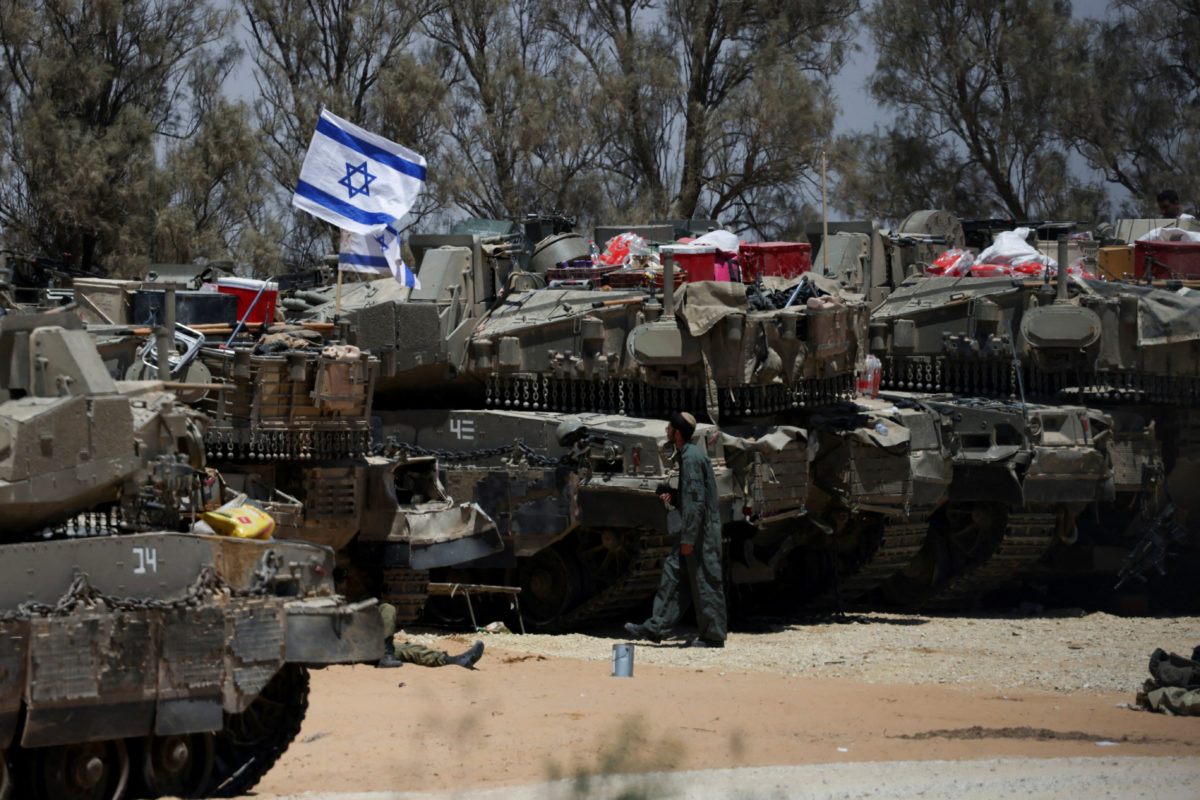The Israeli army took control of a strategic corridor near Rafah along Gaza’s border with Egypt
The Israeli army took control of a strategic corridor near Rafah along Gaza's border with Egypt

The Israeli army announced on Wednesday that it had taken control of a strategic corridor running along Gaza’s border with Egypt, near the city of Rafah, where Israeli foThe Israeli army announcedrces recently fought.
The seizure of the area, known as the Philadelphia Corridor, indicates that Israel has deepened its offensive in southern Gaza, even as calls for restraint over recent civilian deaths have been heard.
The move could complicate relations with Egypt, which has complained about Israel’s advances toward its borders, including when Israeli forces seized the Rafah border crossing, the only crossing between Gaza and Egypt.
The corridor is part of a larger demilitarized zone along both sides of the entire Israeli-Egyptian border. Under the peace agreement, each is allowed to deploy only a small number of troops or border guards in the region. At the time of the agreement, Israeli forces controlled Gaza, until Israel withdrew its forces and settlers in 2005.
The narrow corridor – parts of which are about 100 meters wide – extends 14 kilometers (8.6 miles) from the Gaza side of the border with Egypt and includes the Rafah crossing into Egypt It is known that the smuggling tunnels that extend between Egypt and the Gaza Strip extend under the area.
The Israeli army did not have further details about this move. Earlier Wednesday, a senior Israeli official said Israel’s war with Hamas was likely to continue until the end of the year — a bleak prediction for a conflict already in its eighth month that has killed tens of thousands, deepened Israel’s global isolation and brought turmoil to the region. Repeatedly to the edge of a wider fire.
National Security Advisor Tzachi Hanegbi’s statements came as Israel expanded its attack on the city of Rafah in the southern Gaza Strip, which was the scene of fierce fighting in recent days that led to the deaths of dozens, including displaced Palestinians. The army said that three Israeli soldiers were killed on Tuesday. Israeli media reported that they were killed in an explosion inside a building.
Hanegbi told Kan public radio that he “expects another seven months of fighting” to destroy the military and governance capabilities of Hamas and the smaller Islamic Jihad movement.
He added, “The army is achieving its goals, but it said from the first days that it was presenting its plan to the Council of Ministers and that the war would be long.” “They have set 2024 as the year of war.”
Hanegbi’s statements raise questions about the future of Gaza and what kind of role Israel will play in it. The United States, already a top ally, has demanded that Prime Minister Benjamin Netanyahu decide on a post-war vision for the Palestinian territories, and his defense minister and top ruling partner has warned that he must take steps to ensure that Israel is not embroiled in Gaza indefinitely. .
The war has already devastated Gaza’s urban landscape, displaced most of the Strip’s population and sparked a humanitarian catastrophe and widespread famine. It has opened Israel to international legal scrutiny, with global courts indicting it for its wartime behavior, sparking disagreements with the White House, and pushing three European countries to recognize a Palestinian state against Israel’s wishes.
Israel says it must dismantle the last remaining Hamas brigades in Rafah. It also said that it would seek indefinite security control over the Gaza Strip even after the end of the war.
Israel has not yet achieved its main goals of dismantling Hamas and returning dozens of hostages it captured in the October 7 attack that led to the outbreak of war.
Outside Rafah, Israeli forces are still fighting militants in parts of Gaza that the army said it took control of months ago, potential signs of a low-level insurgency that could keep Israeli forces engaged in the area.








